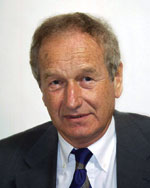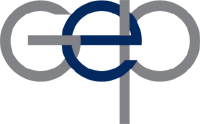France, Germany: GEP chairman sees no obstacles,other than logistics
Interview, Dominique Michel, Chairman, GEP
|
 |
|
|
Dominique Michel is chairman of GEP, the French Oil and Gas Suppliers Council, and president of DORIS Engineering, based in Paris. For GEP, he is responsible for oversight of the organization, in cooperation with its staff.
Question: What is GEP’s role within France’s upstream industry?
Answer: GEP represents the interests of about 150 companies with high technical skills working for the international oil and gas industry. Among these companies are international operators, Total and Gaz de France, and engineering companies and contractors, Technip, Saipem S.A., Compagnie Generale de Geophysique (CGG), Schlumberger, Eiffel Construction Metallique, DORIS Engineering, Ponticelli, etc. Also, there are research institutes, IFP and Ifremer, and many smaller service companies or equipment suppliers. They constitute a very rich industrial environment. Many of these companies are involved upstream.
GEP helps them promote their technological and commercial image worldwide. In this respect, we publish a monthly newsletter, organize regular meetings with operators and engineering companies, and stage our national participation in the main international oil and gas exhibitions.
We also act as an interface between member firms and NOCs and IOCs. Accordingly, we help them identify the right suppliers; receive and forward calls for tenders; initiate contacts for possible joint ventures; facilitate technical visits to France; promote the sharing of expertise through technical seminars; and represent members to French, European and local authorities.
Q: How good was last year’s E&P market for French operators and equipment/ service companies?
A: Last year‘s E&P market can be described as brilliant. Many contracts have been signed by French equipment and service companies, although with a delay of two or three months from the beginning of the year. Several are already onstream, other projects will begin soon, and the problem is now to find the necessary human resources to carry out these contracts successfully.
Q: Based on last year, and assuming that high prices continue, what activity level do you expect for 2006?
A: Activity and business should remain high, hopefully until 2007. I see no reason why projects already launched would stop, as oil demand should not be reduced much in the next few years. However, the rather overheated situation that we are in today might, in the long term, slow down a little, if steel prices climb too high. Manpower short-ages could also hinder the activity of service/ supply companies in our countries, and low-cost firms could take advantage of the situation.
Q: Is there very much exploration potential left within France? Where are the most likely areas for additional seismic and exploratory wells?
A: In France, high oil and gas prices have boosted seismic activity offshore. It has been at its highest level in the last 15 years. According to the Ministry of Industry, about 10 new permit applications have been received. Companies have shown interest for several offshore areas, including Golfe de Gascogne off the French coast; plus, off the coasts of French possessions, Saint-Pierre-et-Miquelon (Guyana) and the canal of Mozambique.
The Ministry expects that exploration investments will increase significantly in 2006, with between 10 and 15 exploration wells to be drilled this year. Onshore, at the moment, companies are mainly conducting data reprocessing. Aside from the traditional production areas of the Parisian basin or Aquitaine, the Lorraine basin and the Jura seem to be promising areas. As of January 2005, French reserves were evaluated at 216 million tons of oil and 10 Bcm of gas.
Q: Are French officials doing enough to encourage E&P activity? Are there any government or industry initiatives that you would like to see?
A: France offers a favorable environment for E&P activity at home. The political and economic context is stable, taxes are without surprise, infrastructures exist, and consumers are close. Thus, many small companies are trying to search in this country, even if everyone knows there is little hope for a big oil find.
Where R&D is concerned, new government initiatives have been taken to support the efforts of small and medium-sized companies. Reducing the level of social taxes and the rigidity of the employment laws could help. As for exports, which are vital for French companies, we have UBIFrance, a government agency responsible for the international development of companies, and Coface, a credit insurance and credit management services provider.
Q: Are French firms obtaining extra business because of high oil prices?
 |
A: They are obtaining their rightful shares of business, as more field developments are confirmed by operators while oil and gas prices are high. Competitiveness and innovative capacity remain the best ways to win contracts. However, the experience of French companies in developing deep and ultra-deep offshore technologies is certainly a strong point.
Q: What are some major field projects involving French firms?
A: Abroad, French service/ supply companies are involved in many prestigious projects, such as Dalia, Usan and Akpo fields for TOTAL; Greater Plutonio field for BP; LNG storage at Bony Island, in West Africa; the big LNG projects in Qatar and Yemen; the construction of two LNG carriers for Gaz de France; and an auto-installing and self-raising platform in the Caspian Sea, to mention only some of them.
Q: What project is a good example of upstream technical work in which French companies are involved?
A: The Dalia project is a good example of the technical capabilities and know-how of French companies. They developed the techniques of flow assurance, bringing the oil flow from the wellheads at the bottom of the sea to the surface; the flowlines and risers; the integration of the topsides on top of the hull; and the naval architecture involved in hull construction.
Q: Are French firms concerned about aggressive Chinese companies, as they lock up E&P tracts and production outside Asia?
A: Generally speaking, I would say not very much, yet. However, we do see Chinese seismic companies competing with us in the onshore sector, but they are not yet present on the marine sector. Of course, they will certainly become competitive in the coming years, when they acquire a better technical level with the advantage of low-cost manpower.
Q: How does GEP feel about OPEC’s continued hawkish attitude toward oil output levels and prices?
A: The term, “hawkish,” does not seem appropriate to me. These countries want to use their oil and gas resources to develop their economies. French companies, like all international firms, have no other choice but to take this fact into account, and accept it while making joint ventures with local companies and investing in local economies. Otherwise, these countries will deny us access to their markets.
Q: Toward which international areas do you think that oil company interest and money are moving?
A: I would say everywhere where oil and gas can be found! The Middle East and West Africa will remain important in the future. Russia will certainly be a major target, when tax problems are solved. Canada will become attractive with development of heavy oil fields.
Q: In summation, what is your view of the future for French companies?
A: Oil and gas developments will require more and more sophisticated technologies in the future. Strong experience and innovation will be absolutely necessary to meet these exciting challenges. I am convinced that French companies are well armed and will successfully participate in the competition. ![]()
Dominique Michel is president of DORIS Engineering and president of DORIS Development Canada Ltd. and Oceanide Inc., as well as chairman of GEP (the French Oil and Gas Suppliers Council). He has spent the greatest part of his career within CG DORIS, which became DORIS Engineering in 1986. He is well known for his expertise in offshore engineering, where he has contributed, with his colleagues, to many technological breakthroughs. Among Mr. Michel’s achievements are the concrete barrier that protects Ekofisk field’s storage tank, offshore Norway; the Hibernia platform offshore Newfoundland; and the Troll Olje platform offshore Norway. In addition, there are the risers and flowlines of Girassol field, designed by DORIS and Stolt Comex Seaway (now Acergy). Mr. Michel is a director of several firms, and a chevalier of the Legion of Honour. He received the scientific Prize Emile Girardeau of the French Marine Academy in 2002 and was elected President of GEP in 2004. |
Comments? Write: editorial@worldoil.com |

 Technology from Europe:
Technology from Europe:
